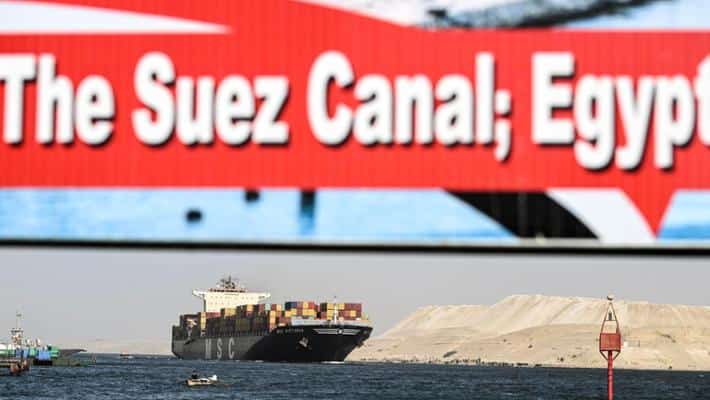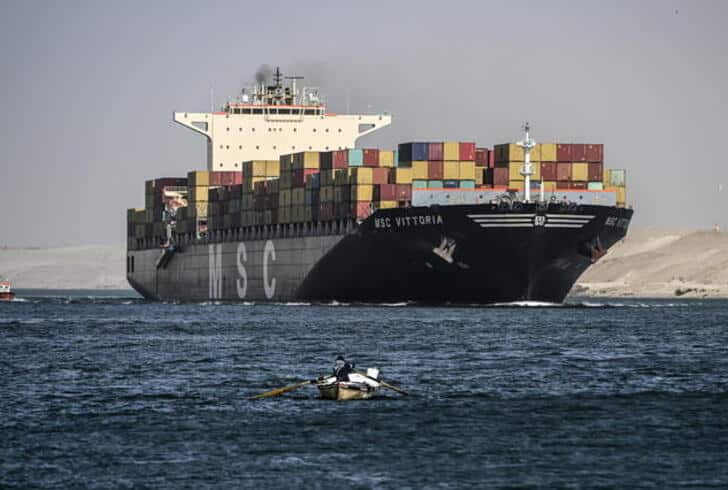After a year marked by inflation exacerbated by the conflict between Russia and Ukraine, 2024 also begins under the shadow of geopolitical tensions.
U.S. forces conducted airstrikes in the past nights against Houthi targets in various locations in Yemen. President Joe Biden justified the offensive, supported by a coalition of 12 countries, as a direct response to Houthi rebels’ attacks on international commercial ships in the Red Sea. The stated objective is the restoration and securing of the shortest route to the East through the crucial Suez Canal.

The Red Sea and the other Commercial Routes
The Red Sea represents one of the primary maritime corridors globally and plays a crucial role in connecting Europe, Asia, and East Africa.
However, recurrent attacks by Houthi groups have led numerous vessels to seek alternative routes to the traditional Suez Canal, often opting for lengthy circumnavigation routes around Africa, resulting in a 70% reduction in container shipping in the Red Sea.
Transiting through the Cape of Good Hope will inevitably entail delivery delays of 10-15 days and a significant increase in shipping tariffs. his scenario is further complicated by the risk of congestion at the Cape of Good Hope and the growing constraint on vessel availability, as they are employed for extended periods on more extended routes.
The impact of these changes, which seem to worsen with each passing day, will have tangible consequences on international trade and the supply chain. The shortage of auto components has already led prominent companies such as Volvo and Tesla to halt production in Europe.
At risk: Italian Imports and Exports
The import and export sectors are currently the most at risk. Along the maritime route of the Red Sea, 40% of Italian import-export moves.
Small businesses, lacking autonomous supply networks and heavily reliant on imports of materials from Asia, are now in a position of particular vulnerability.
The shadow of a potential increase in costs related to maritime trade and the threat of a paralysis of Italy’s historical and strategically important ports, including Genoa, a leader in cargo movements, Trieste, and Gioia Tauro, raises legitimate concerns in the economic landscape.
The export of Made in Italy, particularly the sale of agro-food products to Asia, will be the most directly affected by the consequences In 2022, Italy exported over 150 million kilograms of apples only to Saudi Arabia, India, and the United Arab Emirates. There is also much concern for the export of wine to China, a market worth 112 million euros.
The choice to circumnavigate the African continent is also diminishing the centrality of the Mediterranean in the commercial routes between Europe and Asia.
In relation to this, the National President of Assopanelli, Fantoni, warns about the risk that ships arriving in Europe, after passing the Cape of Good Hope, may head directly north towards Rotterdam, bypassing our port systems with inevitable repercussions, including job losses.

A new inflation?
The potential emergence of a new inflation is at the center of reflections triggered by the Red Sea crisis.
According to JP Morgan, the crisis could compromise global economic growth by two and a half percentage points of GDP and dangerously slow down the expected decline in inflation for the current year.
“Investment company Schroders paints a more optimistic picture: the economic challenges caused by the crisis in the Red Sea will not translate into an inflation rebound and will not compromise the planned interest rate reduction for 2024.
According to Schroders’ analysis, the economies of the Eurozone, the United Kingdom, and the United States show less dependence on supplies disrupted by the conflict in the Suez Canal. The 2020 pandemic has indeed already slowed down the growth of these economies and has favored a more balanced and service-oriented consumption rather than goods-oriented. This suggests a diversification in spending patterns and greater resilience in the face of disruptions in supply chains.
Furthermore – Schroders comments – the global economy would face delays in delivery times, but not actual shortages of components or materials: a situation far removed from the production blockades that characterized the lockdown period.
The manufacturing sector does not seem to be a cause for concern. Greater concerns arise in relation to a potential increase in the price of oil, which could reach $120 per barrel.
We cannot ignore the political significance of the Red Sea crisis, dangerously connected to the Israeli-Palestinian conflict. Houthi attacks against Western merchant vessels represent clear support for the Palestinian people. It cannot be ruled out that, with the increasing Western interference in the delicate Middle East region, Arab countries may respond with an increase in crude oil prices, which, with a cascading effect, would impact retail prices for end consumers.
A sea of uncertainties
In a global landscape characterized by unstable and highly conflictual geopolitical contexts, market volatility becomes a crucial factor for Italian and European investors to consider.”
The international markets’ response to potential escalations in the Middle East, as well as to political elections in the United States and Europe, remains uncertain and difficult to predict.
Investors should, therefore, shift towards more defensive , strategies aimed at preserving savings in the long term, such as portfolio diversification through resilient asset classes, attention to sectors less affected by geopolitical tensions, and the use of financial hedging instruments.
